CorTec-Team
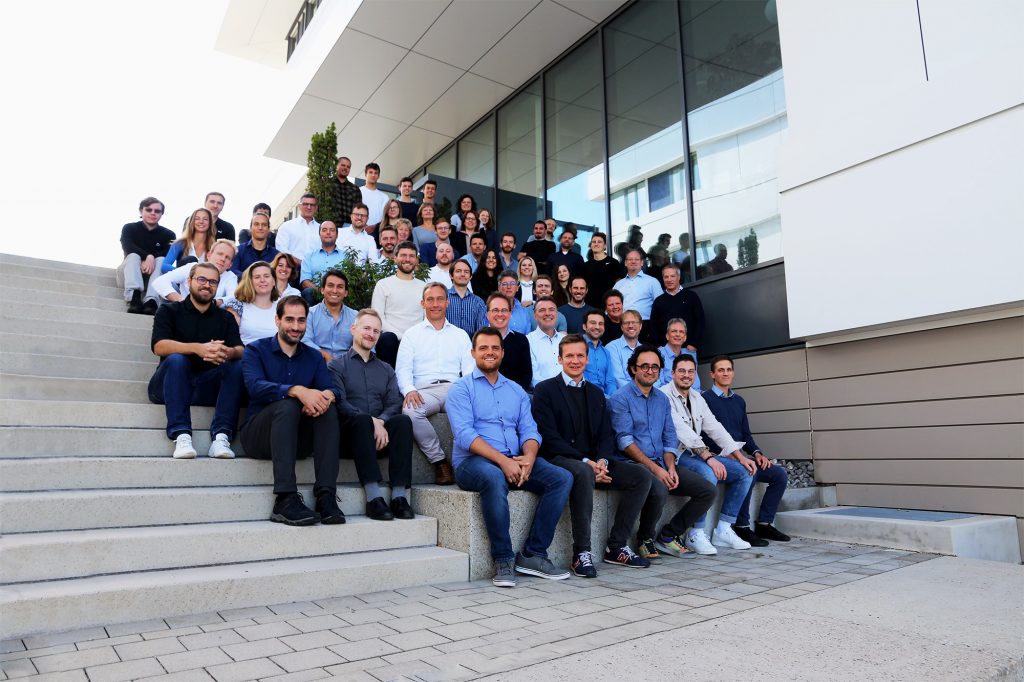
Management
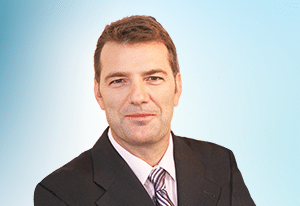
Dr. Oliver Bärtl
Chief Executive Officer
Dr. Oliver Bärtl brings more than 15 years of international leadership experience in the medical device industry. Before he joined CorTec, Dr. Bärtl served as co-CEO of Henke-Sass, Wolf, a hidden champion in the medical device market operating in the fields of endoscopy and veterinary. Prior to Henke-Sass, Wolf, Dr. Bärtl worked for 13 years in different executive management roles at Stryker, one of the world’s leading medical technology companies.
Dr. Bärtl holds a degree in mechanical engineering from Technical College Ferlach and a M.Sc. in business, accounting, finance, and international business from Goethe University and Wisconsin School of Business. In 1999 he earned his PhD in managerial accounting from the University of Zurich.
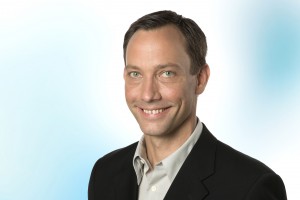
Dr. Martin Schüttler
Chief Technology Officer
Martin Schüttler studied electrical engineering at the University of Braunschweig. His dissertation discussed nerve intersections processed using microsystems engineering. Since the completion of his PhD in 2002, and with more than 150 publications, he has earned an international reputation in the field of neuroprosthetics.
After several research periods abroad, he became team leader at the Department of Microsystems Engineering, chaired by Prof. Dr. Thomas Stieglitz, and one of the leading scientists at the BMII in Freiburg. In this role he was involved in the development of the CorTec technology right from the start. At CorTec he is responsible for the coordination of all developmental work.
Regulatory & Clinical Advisor
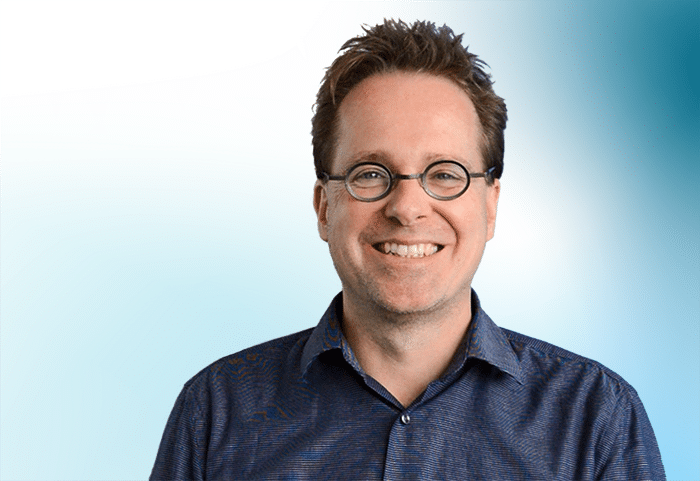
Claus Freyinger
Regulatory & Clinical Affairs
Claus Freyinger brings over 20 years of med-tech industry experience at multinational med-tech leaders like Stryker, Medtronic, Sorin CRM, as well as stints with an EU Notified Body and several med-tech start-ups.
Areas of demonstrated success for Claus include leading global teams, strategic and tactical initiatives including time-to-market acceleration, and regulatory advocacy & clinical affairs activities globally. His educational background includes degrees from Boston College, executive education from Kellogg School of Management (Chicago), and a Certificat d’Etudes Politiques from “Sciences Po” (Strasbourg, France).
Advisory Board
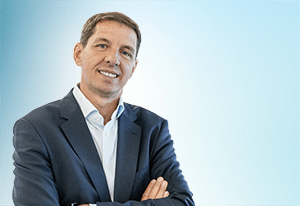
Helmut Jeggle
Chairman
Helmut Jeggle is an accomplished senior executive manager with more than 20 years of international experience in the financial field, including strategic management within corporate/noncorporate environments as well as substantial transactional experience.
Mr. Jeggle is currently the Chief Executive Officer of Salvia GmbH (since 2014). Until 2021, Mr. Jeggle held CEO positions at Neula Holding GmbH (2010-2021) and AT-Gruppe (2008-2021) and was a manager of Santo Group (2011-2021).
Helmut Jeggle is a member of numerous supervisory boards, including 4SC AG, AiCuris AG, BioNTech SE, and tonies SE. Mr. Jeggle holds a degree in business administration from the University of Applied Sciences Neu-Ulm and earned his MBA from the Stuttgart Institute of Management and Technology.
(Picture Credit: D.Gierke/Salvia GMBH)
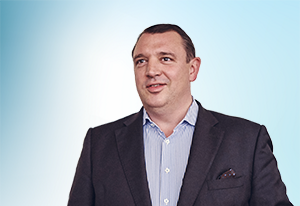
Dr. Christoph Mangold
Deputy Chairman
After studying law at the university of Wuerzburg/Germany, Dr. Mangold served as lawyer for several international law firms, such as “Orrick Herrington & Sutcliffe”. He focused on international arbitration and M&A transactions. In 2012, Dr. Mangold became managing director of Mangold Consulting GmbH and advises private and corporate clients in their activities in Eastern Europe (especially Hungary and Romania) as well as Central Asia (especially Uzbekistan and Kazakhstan). He is also managing director of a family-owned investment company with a portfolio in real estate, forestry, MedTec and health. In addition, Dr. Mangold is a member of the advisory board of a Liechtenstein foundation with a large investment portfolio and member of the advisory boards of Mediio GmbH and CorTec GmbH.
Dr. Mangold is also member of several organizations such as, “Stiftung Familienunternehmen”, “Familienbetriebe Land & Forst”, “Rotary” and the “International Council for Game and Wildlife Conservation”. He is married and has three children.
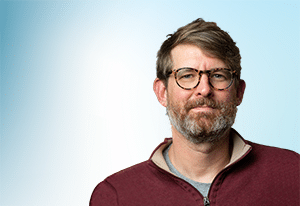
Prof. Dr. Timothy Denison
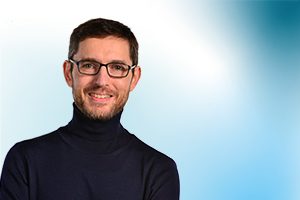
Prof. Dr. Pascal Fries
Prof. Dr. Pascal Fries studied medicine at the University of Saarland and at the Johann Wolfgang Goethe University in Frankfurt. In 2000, he received his Ph.D. with honors from the Max Planck Institute for Brain Research and the Johann Wolfgang von Goethe University in Frankfurt. He gained outstanding international scientific experience and reach at the National Institute of Mental Health, Bethesda, Maryland, and at Radboud University Nijmegen, Netherlands, where he has been Professor of Systems Neuroscience since 2008.
Prof. Dr. Fries is a scientific member of the Max Planck Society.
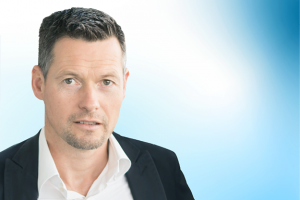
Marco Winzer
Marco Winzer has been with the High-Tech Gruenderfonds since its inception and has been involved in setting up the fund. He has been a partner at the HTGF since 2018. The economics graduate has many years of experience in financing start-up companies in the field of life sciences and has accompanied the value chain of the ‘venture capital model’ from seed financing to successful exit several times.
Before joining HTGF, he gained know-how in start-up consulting and worked for the Business Innovation Center Kaiserslautern, Technologie-Beteiligungsgesellschaft and KfW.
Scientific Technical Advisory Board
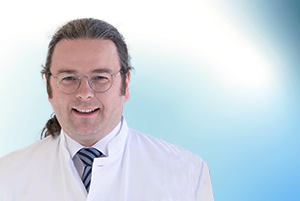
Prof. Dr. Volker A. Coenen
Volker A. Coenen is medical director of the Department of Stereotactic and Functional Neurosurgery at the Department of Neurosurgery at the University Medical Center Freiburg.
Before he was working at Uniklinik RWTH Aachen as head of the the Division for Functional Neurosurgery. After a fellowship in the field of functional and stereotactic neurosurgery at the University of British Columbia in Vancouver, Canada, in the years of 2007 and 2008 he acquired a professorship of stereotaxis and MR-based operative techniques at the University Hospital of Bonn. Since 2013 he is Full Professor (W3) of Stereotactic and Functional Neurosurgery in Freiburg apart from his position as medical director.
In his research Professor Coenen is concerned with the subject of neuroprosthetics since 2001 specializing on deep brain stimulation (DBS). Focus areas are Parkinson’s disease, tremor and dystonia. In addition he is also working in the field of treating therapy-resistant epilepsy with stereo-EEG, Vagus Nerve stimulation or DBS. Since 2008 he extended his research also on therapy-resistant depression, obsessive-compulsive disorders and imaging assisted Deep Brain Stimulation.
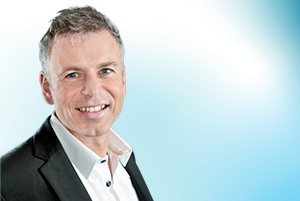
Alexander Mayr
Alexander Mayr graduated in Telecommunication Engineering and Electronics from Higher Technical Institute in Innsbruck. He started his career as a technical assistant at the Institute of General Electrical Engineering in Vienna in 1985.
In spring 1986, he moved to Institute for Applied Physics of University of Innsbruck together with Prof. Dr. Erwin Hochmair where he was responsible for transforming university research prototypes into commercial products. The primary focus of this role was leading cochlear implants, speech processors plus fitting software to production.
His responsibilities expanded to developing a device for motion analysis of the cervical spine in space conditions which was considered to be the biggest project of Austrian air and space in MIR space station.
Alexander Mayr is one of the first employees of MED-EL company. Since joining MED-EL in 1990, he is Head of Implant Manufacturing. In this role he oversees the manufacturing of all types of implants and supervises the complete infrastructure, technology and logistics of the manufacturing processes.
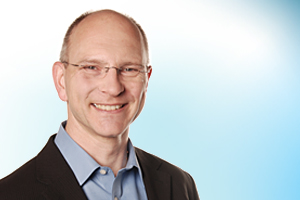
Prof. Dr. Thomas Stieglitz
Thomas Stieglitz studied electrical engineering, specializing in biomedical engineering, in Brunswick and Karlsruhe. He got his PhD from Saarland University where he also habilitated in biomedical microsystems engineering in 2002.
From 1993 to 2004, he worked at the Fraunhofer Institute for Biomedical Engineering (Institut für Biomedizinische Technik, IBMT) in St. Ingbert. There he founded the research conducted in the field of biomedical microsystems for neuroprosthetics, which eventually led to the formation of a neuroprosthetics task force.
Since 2004, Prof. Stieglitz has held the chair for biomedical microtechnology at the Department of Microsystems Engineering (Institut für Mikrosystemtechnik, IMTEK) at the University of Freiburg. His research priorities include the development of biocompatible construction and interconnection technologies as well as the use of microsystems for neuroprostheses and neuromodulation.
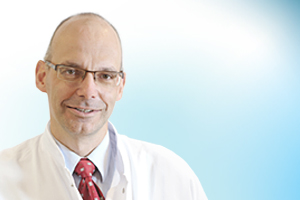
Prof. Dr. Ulf Ziemann
Ulf Ziemann studied medicine in Göttingen. Since 1996, he has been a neurology specialist. He completed his habilitation in neurology and clinical neurophysiology at the University of Göttingen in 1999. From 2004-2012, he was chief physician of the Clinic for Neurology at the University Hospital Frankfurt. In May 2013, he became medical director of the Department of Neurology with a focus on vascular neurology at the University Medical Center Tübingen.
His scientific work focuses on exploring the plasticity of the brain, its capacity to learn and to reorganize – particularly in cases of physical and cognitive impairments. His research has a particular focus on impairments caused by strokes or multiple sclerosis.
At the University Hospital Frankfurt, Prof. Ziemann was director of a motor cortex research group. He was also coordinator and spokesperson of the interdisciplinary collaborative research “Neuronal Coordination Research Focus Frankfurt” (NeFF). In Tübingen, he will continue to dedicate himself to the systems-neurophysiological exploration of the plasticity and reorganization of the brain.